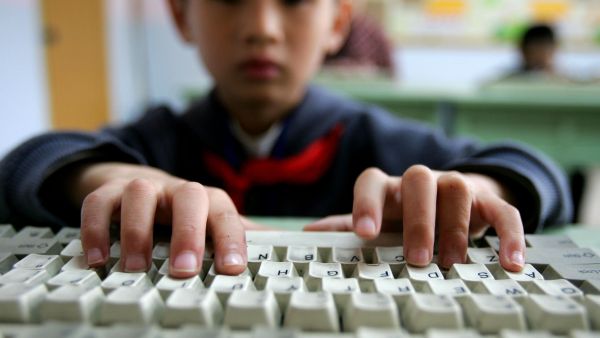They believe the duty of parenting is not just to ensure their children’s health and safety, but also to teach them morals, family values, manners and etiquette. Parents say looking after their children has become more difficult, especially when the new generation is looking for freedom and independence in making decisions. Nouf Ghazzawi, a Saudi housewife and mother of two, believes that new communication methods have weakened her role in raising her children. “The possibility of losing control over my children was unexpected. My husband and I were raised under the control of our parents in addition to our elder brothers and sisters. This was the case for most children in our time,” she said. “I got married 10 years ago and I was expected to raise my children as my mother did with me. When I had my son nine years ago, I was able to control him for the first seven years of his life. Later after he went to school, I tried to maintain the same control but I discovered that nowadays he has his own world and is influenced by groups and friends on Facebook. They changed his attitude and broadened his horizons.” Ruwida Rami, a Lebanese teacher at a private school and mother of three, said most children become very independent because they have their own communication tools like a laptop, iPad and mobile phone. “Parents will be most effective if they adapt to the changes in their children’s characters instead of fighting to control them. Losing control over our children has become a truth that we cannot deny or fight. There is no law that says parents and teens must engage in power struggles that turn homes into battlegrounds,” she added. According to Rami, many of her friends complained about losing the control of their children after they got their own communication tools. “Communication tools almost create a private world for its users. Sometimes it takes the child from his family, so he believes that he is independent and is not ready to obey his parents or share his private world with them.” Some parents interpret “losing control” as meaning that the job of parenting is over. Jihan Ali, a Syrian mother of four teenagers, believes that her life turned upside down after her daughters and sons got their own Facebook profiles, smart mobiles and e-mail accounts. “Back when they were children, they looked to me for everything. Not only food, clothes and love, they were asking me to make their decisions, set their boundaries, and keep them safe,” Ali said. According to her, after she lost control over her children, she devised a new strategy to regain that control without antagonizing her children. “My new strategy was based on studies and published research talking about the newest strategies of parenting for a new generation that fights strongly to have their own independent lifestyle,” she said. “For example, I try to listen to their concerns without offering advice or opinions and certainly not criticisms. This made them free to talk to me openly. I did that because I realized that most children want to express concerns, not receive advice.” She added that she always reminds herself that what worked for her generation may not be applicable to her children. “Our children are raised in a different environment. In addition, every child is unique with his or her own nature, talents and personal issues. I concluded that losing control is natural at this stage, but parents should try to restore control by developing their parenting skills and education.” Dr. Buthina Bukhari, a child psychology expert, confirmed that every parent’s ultimate goal should be establishing a family democracy based on open communication, honesty, trust, and the ability to express views openly. “Family democracy would significantly reduce insolence and rebellion. When children help their parents in making decisions, they will certainly obey their parents and become more satisfied about their lifestyle,” said Bukhari. “Most families complain about losing control over their children when they reach a certain stage, which is often adolescence. This stage is the bridge between childhood and adulthood. As a society we readily acknowledge that it can be a challenging transition. During this stage, parents should understand a certain amount of attitude and rebellion is normal.” Losing control is a feeling that all parents will feel when their children become adults and develop their own lifestyle. In addition, new communication methods have led Arab teenagers to become more rebellious and parents should be smart in overcoming this, said Bukhari. “As a society we should treat this level of conflict between parents and teens as normal. Many people believe that it’s a predictable stage of family life. But it isn’t.
It is possible to have a good relationship with teenage children.
But parenting the new generation of teens does require a literal shift in style. All that is required from parents is to have a sense of democracy.”








